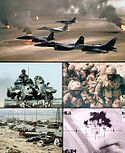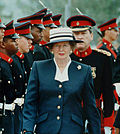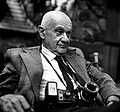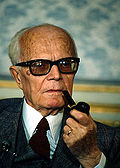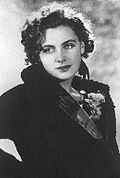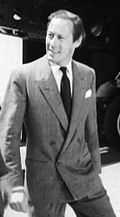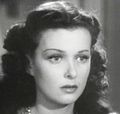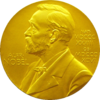
1990
Background Information
SOS Children made this Wikipedia selection alongside other schools resources. Do you want to know about sponsoring? See www.sponsorachild.org.uk
| Millennium: | 2nd millennium |
|---|---|
| Centuries: | 19th century – 20th century – 21st century |
| Decades: | 1960s 1970s 1980s – 1990s – 2000s 2010s 2020s |
| Years: | 1987 1988 1989 – 1990 – 1991 1992 1993 |
| 1990 by topic: |
| Subject |
|
| By country |
|
| Leaders |
|
| Birth and death categories |
|
| Establishments and disestablishments categories |
|
| Works and introductions categories |
|
| Gregorian calendar | 1990 MCMXC |
| Ab urbe condita | 2743 |
| Armenian calendar | 1439 ԹՎ ՌՆԼԹ |
| Assyrian calendar | 6740 |
| Bahá'í calendar | 146–147 |
| Bengali calendar | 1397 |
| Berber calendar | 2940 |
| British Regnal year | 38 Eliz. 2 – 39 Eliz. 2 |
| Buddhist calendar | 2534 |
| Burmese calendar | 1352 |
| Byzantine calendar | 7498–7499 |
| Chinese calendar | 己巳年十二月初五日 (4626/4686-12-5) — to — 庚午年十一月十五日(4627/4687-11-15) |
| Coptic calendar | 1706–1707 |
| Ethiopian calendar | 1982–1983 |
| Hebrew calendar | 5750–5751 |
| Hindu calendars | |
| - Vikram Samvat | 2046–2047 |
| - Shaka Samvat | 1912–1913 |
| - Kali Yuga | 5091–5092 |
| Holocene calendar | 11990 |
| Igbo calendar | |
| - Ǹrí Ìgbò | 990–991 |
| Iranian calendar | 1368–1369 |
| Islamic calendar | 1410–1411 |
| Japanese calendar | Heisei 2 (平成2年) |
| Juche calendar | 79 |
| Julian calendar | Gregorian minus 13 days |
| Korean calendar | 4323 |
| Minguo calendar | ROC 79 民國79年 |
| Thai solar calendar | 2533 |
| Unix time | 631152000–662687999 |
1990 (MCMXC) was a common year that started on a Monday. In the Gregorian calendar, it was the 1990th year of Anno Domini; the 990th year of the 2nd millennium; the 90th year of the 20th century; and the 1st year of the 1990s.
Important events of 1990 include the Reunification of Germany, the separation of Namibia from South Africa, Desert Shield, the formal beginning of the Human Genome Project (finished in 2003), the launch of the Hubble Space Telescope and the declaration of independence from the Baltic States.
Events
January

- January 1
- Glasgow begins its year as European Capital of Culture.
- Television debut of Rowan Atkinson's Mr. Bean in a Thames Television special.
- January 3 – United States invasion of Panama: General Manuel Noriega, the deposed " strongman of Panama", surrenders to American forces.
- January 4 – Two trains collide in Sangi, Pakistan, killing between 200 and 300 people and injuring an estimated 700 others.
- January 7 – The Leaning Tower of Pisa is closed to the public because of safety concerns.
- January 9 – Ugandan Lt. Gen. Bazilio Olara-Okello, who led a coup against Dr. Apolo Milton Obote's government, dies in Ormduruman Hospital in Khartoum, Sudan.
- January 10 – Time Warner is formed from the merger of Time Inc. and Warner Communications Inc.
- January 11 – Cold War: In Lithuania, 300,000 demonstrate for independence.
- January 15
- The National Assembly of Bulgaria votes to end one party rule by the Bulgarian Communist Party.
- Thousands storm the Stasi headquarters in East Berlin in an attempt to view their government records.
- Martin Luther King Day Crash - Telephone service in Atlanta, St. Louis, and Detroit, including 9-1-1 service, goes down for nine hours, due to an AT&T software bug.
- January 20
- Cold War: Soviet troops occupy Baku, Azerbaijan, under the state of emergency decree issued by Soviet premier Mikhail Gorbachev and kill over 130 and wound over 700 protesters for national independence.
- Clashes break out between Indian troops and Muslim separatists in Kashmir.
- The government of Haiti declares a state of siege, under which it suspends civil liberties, imposes censorship, and arrests political opponents. The state of siege is lifted on January 29.
- January 22
- The League of Communists of Yugoslavia votes to give up its monopoly on power.
- Robert Tappan Morris, Jr. is convicted of releasing the Morris worm.
- January 25
- Avianca Flight 52 crashes into Cove Neck, Long Island, New York after a miscommunication between the flight crew and JFK Airport officials, killing 73 people on board.
- Prime Minister of Pakistan Benazir Bhutto gives birth to a girl, becoming the first modern head of government to bear a child while in office.
- Pope John Paul II begins an eight-day tour of Cape Verde, Guinea-Bissau, Mali, Burkina Faso, and Chad.
- January 25– 26 – The Burns' Day storm kills 97 in northwestern Europe.
- January 27 – The city of Tiraspol in the Moldavian SSR briefly declares independence.
- January 28 – The Polish United Workers' Party votes to dissolve itself and reorganize itself as the Social Democracy of the Republic of Poland.
- January 29
- The trial of Joseph Hazelwood, former skipper of the Exxon Valdez, begins in Anchorage, Alaska. He is accused of negligence that resulted in America's second worst oil spill to date.
- In Holmdel, New Jersey, scientists at Bell Labs announce they have created a digital optical processor that could lead to the development of superfast computers that use pulses of light rather than electric currents to make calculations.
- January 31
- Globalization - The first McDonald's in Moscow, Russia opens 10 months after construction began in March 1989. 8 months later the first McDonalds in Mainland China is opened in Shenzhen.
- President of the United States George H. W. Bush gives his first State of the Union address and proposes that the U.S. and the Soviet Union make deep cuts to their military forces in Europe.
February
- February 2 – Apartheid: In South Africa, President F.W. de Klerk allows the African National Congress to legally function again and promises to free Nelson Mandela.
- February 7
- The Communist Party of the Soviet Union votes to end its monopoly of power, clearing the way for multiparty elections.
- In the Tajik Soviet Socialist Republic, rioting breaks out against the settlement of Armenian refugees there.
- February 10 – President of South Africa F.W. de Klerk announces that Nelson Mandela will be released the next day.
- February 11 – Nelson Mandela is released from Victor Verster Prison, near Cape Town, South Africa, after 27 years behind bars.
- February 12 – Represenatatives of NATO and the Warsaw Pact meet in Ottawa for an "Open Skies" conference. The conference results in agreements about superpower troop levels in Europe and on German reunification.
- February 13
- German reunification: An agreement is reached for a two-stage plan to reunite Germany.
- Drexel Burnham Lambert files for bankruptcy protection, Chapter 11.
- February 14 – The Pale Blue Dot photograph of Earth is sent back from the Voyager 1 probe after completing its primary mission, from around 3.5 billion miles away.
- February 15
- The United Kingdom and Argentina restore diplomatic relations after 8 years. The UK had severed ties in response to Argentina's invasion of the Falkland Islands, a British Dependent Territory, in 1982.
- In Cartagena, Colombia, a summit is held between President of the United States George H. W. Bush, President of Bolivia Jaime Paz Zamora, President of Colombia Virgilio Barco Vargas, and President of Peru Alan García. The leaders pledge additional cooperation in fighting international drug trafficking.
- February 24 – The Lithuanian Soviet Socialist Republic holds the first democratic election in the history of the Soviet Union.
- February 26
- The Sandinistas are defeated in the Nicaraguan elections, with Violeta Chamorro elected as the new president of Nicaragua, replacing Daniel Ortega.
- The USSR agrees to withdraw all 73,500 troops from Czechoslovakia by July, 1991.
- February 27 – Exxon Valdez oil spill: Exxon and its shipping company are indicted on 5 criminal counts.
- February 28 – President of Nicaragua Daniel Ortega announces a cease-fire with the U.S.-backed contras.
March
- March 1
- March 3 – The International Trans-Antarctica Expedition, a group of six explorer for six nations, completes the first dog sled crossing of Antarctica.
- March 6 – An SR-71 sets a U.S. transcontinental speed record of 1 hour 8 minutes 17 seconds, on what is publicized as its last official flight.
- March 9
- Police seal off Brixton in South London after another night of protests against the poll tax.
- Newfoundland Premier Clyde Wells confirms he will rescind Newfoundland's approval of the Meech Lake Accord.
- March 10 – Eighteen months after seizing power in a coup, Prosper Avril is ousted in Haiti.
- March 11 – Cold War: Lithuania declares independence from the Soviet Union with the Act of the Re-Establishment of the State of Lithuania.
- March 12
- March 13 – The Supreme Soviet of the Soviet Union approves changes to the Constitution of the Soviet Union to create a strong U.S.-style presidency. Mikhail Gorbachev is elected to a five-year term as the first-ever President of the Soviet Union on March 15.
- March 15
- Iraq hangs British journalist Farzad Bazoft for spying. Daphne Parish, a British nurse, is sentenced to 15 years' imprisonment as an accomplice.
- Mikhail Gorbachev is elected as the first executive president of the Soviet Union.
- Cold War: The Soviet Union announces that Lithuania's declaration of independence is invalid.
- Fernando Collor de Mello takes office as President of Brazil, Brazil's first democratically elected president since 1961. The next day he announces a currency freeze and freezes large bank accounts for 18 months.
- March 18
- Twelve paintings, collectively worth $100 to $300 million, are stolen from the Isabella Stewart Gardner Museum in Boston, Massachusetts by 2 thieves posing as police officers. This is the largest art theft in US history, and the paintings (as of 2011) have not been recovered.
- Cold War: East Germany holds its first free elections.
- March 20 – Ferdinand Marcos's widow, Imelda Marcos, goes on trial for bribery, embezzlement, and racketeering.
- March 21 – After 75 years of South African rule, Namibia becomes independent.
- March 24 – In the Australian federal election, the Australian Labor Party, led by Prime Minister of Australia Bob Hawke, clings to power with a reduced majority.
- March 25
- In New York City, a fire due to arson at an illegal social club called " Happy Land" kills 87.
- Archbishop of Canterbury Robert Runcie announces his intention to retire at the end of the year.
- In the Hungarian parliamentary election, Hungary's first multiparty election since 1948, the Hungarian Democratic Forum wins the most seats.
- March 26 – The 62nd Academy Awards, hosted by Billy Crystal, are held at the Dorothy Chandler Pavilion in Los Angeles, California, with Driving Miss Daisy winning Best Picture.
- March 27 – The United States begins broadcasting TV Martí to Cuba.
- March 28 – U.S. President George H. W. Bush posthumously awards Jesse Owens the Congressional Gold Medal.
- March 30 – Cold War: After its first free elections during the Soviet era on March 18, Estonia declares Soviet rule to have been illegal since 1940.
- March 31 – " The Second Battle of Trafalgar": A massive anti- poll tax demonstration in Trafalgar Square, London, turns into a riot; 471 people are injured, and 341 arrested.
April
- April 1
- The Community Charge (poll tax) takes effect in England and Wales amid widespread protests
- Strangeways Prison riot: The longest prison riot in Britain's history begins at Strangeways Prison in Manchester, and continues for 3 weeks and 3 days, until April 25.
- The Ultimate Warrior defeats Hulk Hogan to win the WWF Championship in a Title for Title, winner takes all match at WrestleMania VI in front of nearly 68,000 at the SkyDome in Toronto, Ontario
- April 6 – Robert Mapplethorpe's "The Perfect Moment" show of nude and homoerotic photographs opens at the Cincinnati Contemporary Arts Centre, in spite of accusations of indecency by Citizens for Community Values.
- April 7
- April 8
- In Nepal, Gyanendra of Nepal lifts a ban on political parties following violent protests.
- In the Greek legislative election, the conservative New Democracy wins the most seats in the Hellenic Parliament; its leader, Konstantinos Mitsotakis, becomes Prime Minister of Greece on April 11.
- In the Socialist Federal Republic of Yugoslavia, the Socialist Republic of Slovenia holds Yugoslavia's first multiparty election since 1938. After the election, a centre-right coalition led by Lojze Peterle forms Yugoslavia's first non-Communist government since 1945.
- April 9 – Comet Austin, the brightest comet visible from Earth since 1975, makes its closest approach to the sun.
- April 12 – Lothar de Maizière becomes prime minister of East Germany, heading a conservative coalition that favors German reunification.
- April 13 – Cold War: The Soviet Union apologizes for the Katyn Massacre.
- April 15 – Food poisoning kills 450 guests at an engagement party in Uttar Pradesh.
- April 22
- Lebanon hostage crisis: Lebanese kidnappers release American educator Robert Polhill, who had been held hostage since January 1987.
- Earth Day 20 is celebrated by millions worldwide.
- April 24
- Cold War: West Germany and East Germany agree to merge currency and economies on July 1.
- STS-31: The Hubble Space Telescope is launched aboard Space Shuttle Discovery.
- President of Zaire Mobutu Sese Seko lifts a 20-year ban on opposition parties.
- April 25 – Violeta Chamorro is elected President of Nicaragua.
- April 30 – Lebanon hostage crisis: Lebanese kidnappers release American educator Frank H. Reed, who had been held hostage since September 1986.
May
- May 1 – The former Episcopal Church in the Philippines (supervised by the Episcopal Church of the United States of America) is granted full autonomy and raised to the states of an Autocephalous Anglican Province and renamed the Episcopal Church of the Philippines.
- May 2 – In London, a man brandishing a knife robs a courier of bearer bonds worth £292 million (the second largest mugging to date).
- May 2–4 – First talks between the government of South Africa and the African National Congress.
- May 4 – Cold War: Latvia declares independence from the Soviet Union.
- May 6–13 – Pope John Paul II visits Mexico.
- May 8
- May 9 – In South Korea, police battle antigovernment protestors in Seoul and two other cities.
- May 13 – In the Philippines, gunmen kill two United States Air Force airmen near Clark Air Base on the eve of talks between the Philippines and the United States over the future of American military bases in the Philippines.
- May 15 – Portrait of Doctor Gachet by Vincent van Gogh is sold for a record $82.5 million.
- May 17 – The World Health Organization removes homosexuality from its list of diseases.
- May 18 – German reunification: East Germany and West Germany sign a treaty to emerge their economic and social systems, effective July 1.
- May 19 – The US and the USSR agree to end production of chemical weapons and to destroy most of their stockpiles of chemical weapons.
- May 20
- Cold War: The first post-Communist presidential and parliamentary elections are held in Romania.
- An Israeli gunman kills 7 Palestinians, leading to bloody riots in the Israeli-occupied Gaza Strip and West Bank.
- May 21 – In Kashmir, a Kashmiri Islamic leader is assassinated and Indian security forces open fire on mourners carrying his body, killing at least 47 people.
- May 22
- Cold War: The leaders of the Yemen Arab Republic and the People's Democratic Republic of Yemen announce the unification of their countries as the Republic of Yemen.
- Microsoft releases Windows 3.0.
- May 27
- In the Burmese general election, Burma's first multiparty election in 30 years, the National League for Democracy led by Aung San Suu Kyi wins in a landslide, but the State Law and Order Restoration Council nullifies the election results.
- In the Colombian presidential election, César Gaviria is elected President of Colombia; he takes office on August 7.
- May 29
- Mikhail Gorbachev arrives in Ottawa for a 29-hour visit.
- Boris Yeltsin is elected as the first ever elected president of the Russian Soviet Federative Socialist Republic.
- European Bank for Reconstruction and Development (EBRD) founded.
- May 30 - George H. W. Bush and Mikhail Gorbachev begin a four-day summit meeting in Washington, D.C.
June
- June 1
- Cold War: U.S. President George H. W. Bush and Soviet Union leader Mikhail Gorbachev sign a treaty to end chemical weapon production and begin destroying their respective stocks.
- Members of the Provisional Irish Republican Army shoot and kill Major Michael Dillon-Lee and Private William Robert Davies of the British Army. Dillon-Lee is killed outside his home in Dortmund, Germany and Davies is killed at a railway station in Lichfield, England.
- June 2
- June 4 – Violence breaks out in the Kirghiz Soviet Socialist Republic between the majority Kyrgyz people and minority Uzbeks over the distribution of homestead land.
- June 7 – Metropolitan Alexy of Leningrad is elected Russian Orthodox Patriarch of Moscow and all the Rus'.
- June 8
- The 1990 FIFA World Cup begins in Italy.
- Prime Minister of Israel Yitzhak Shamir ends 88 days with only an acting government by forming a coalition of right-wing and religious parties led by Shamir's Likud party.
- June 8–9 – In the Czechoslovakian parliamentary election, Czechoslovakia's first free election since 1946, the Civic Forum wins the most seats but fails to secure a majority.
- June 9 – Mega Borg oil spill in the Gulf of Mexico near Galveston, Texas.
- June 10
- Alberto Fujimori is elected President of Peru; he takes office on July 28.
- First round of the Bulgarian Constitutional Assembly election sees the Bulgarian Socialist Party win a majority. The second round of voting is held June 17.
- June 12
- June 13 – June 1990 Mineriad: Fighting breaks out in Romania in the aftermath of the Romanian Revolution of 1989, between the supporters of Nicolae Ceauşescu and the Communist regime, and those of the new regime.
- June 17–30 – Nelson Mandela tours North America, visiting 3 Canadian and 8 U.S. cities.
- June 19 – The Communist Party of the Russian Soviet Federative Socialist Republic is founded in Moscow.
- June 21 – An earthquake measuring 7.3 on the Richter Scale kills thousands in the Iranian city of Manjil.
- June 22 – Underwater volcano Mount Didicas erupts in the Philippines.
- June 23 – In Canada, the Meech Lake Accord dies after the Manitoba and Newfoundland legislatures fail to approve it ahead of the deadline.
- June 24 – Kathleen Young and Irene Templeton are ordained as priests in St Anne's Cathedral, Belfast, becoming the first female Anglican priests in the United Kingdom.
July
- July 1 – German reunification: East Germany and West Germany merge their economies.
- July 2
- A stampede in a pedestrian tunnel leading to Mecca kills 1,426.
- A U.S. District Court acquits Imelda Marcos on racketeering and fraud charges.
- July 5 – In Kenya, riots erupt against the Kenya African National Union's monopoly on power.
- July 6
- President of Bulgaria Petar Mladenov resigns over charges he order tanks to disperse antigovernment protests in December 1989.
- Somali president Siad Barre's bodyguards massacre antigovernment demonstrators during a soccer match; 65 people are killed, more than 300 seriously injured.
- July 7–8 – Martina Navratilova of the United States wins the 1990 Wimbledon Championships – Women's Singles and Stefan Edberg of Sweden wins the 1990 Wimbledon Championships – Men's Singles.
- July 8 – West Germany defeats Argentina 1–0 to win the 1990 FIFA World Cup.
- July 9–11 – The 16th G7 summit is held in Houston.
- July 11 – Terrorist act in Azerbaijan. Armenian terrorists blow up passenger bus moving from Kelbecer to Tartar. 14 people are killed, 35 were wounded.
- July 15 – Tamil Tigers kill 168 Muslims in Colombo, Sri Lanka.
- July 16 – An earthquake measuring 7.7 on the Richter Scale kills more than 1,600 in the Philippines.
- July 22 – First round of the Mongolian legislative election, the first multiparty ever held in Mongolia; the Mongolian People's Party wins by a wide margin after the second round of voting on July 29.
- July 25
- George Carey, Bishop of Bath and Wells, is named as the new Archbishop of Canterbury.
- The Serbian Democratic Party declares the sovereignty of the Serbs in Croatia.
- July 26 – U.S. President George H. W. Bush signs the Americans with Disabilities Act, designed to protect disabled Americans from discrimination.
- July 27
- The parliament building and a government television house in Port of Spain, Trinidad and Tobago are stormed by the Jamaat al Muslimeen in a coup d'état attempt which lasts 5 days. Approximately 26 to 30 people are killed and several wounded (including then Prime Minister, A. N. R. Robinson, who is shot in the leg).
- Cold War: Belarus declares its sovereignty, a key step toward independence from the USSR.
- July 28 – Albert Fujimori becomes president of Peru.
- July 30 – A Provisional Irish Republican Army car bomb kills former British politician and former Member of Parliament Ian Gow outside his home in England.
August
- August 1 – The National Assembly of Bulgaria elects Zhelyu Zhelev as the first non-Communist President of Bulgaria in 40 years.
- August 2 – Gulf War: Iraq invades Kuwait, eventually leading to the Gulf War.
- August 6
- Gulf War: The United Nations Security Council orders a global trade embargo against Iraq in response to its invasion of Kuwait.
- President of Pakistan Ghulam Ishaq Khan dismisses Prime Minister of Pakistan Benazir Bhutto, accusing her of corruption and abuse of power.
- The South African government and ANC begin talks on ending Apartheid in South Africa.
- August 7
- U.S. President Bush orders U.S. combat planes and troops to Saudi Arabia to protect a possible attack by Iraq.
- Prime Minister of India V. P. Singh announces plan to reserve 49% of civil service jobs for lower- caste Hindus. The plan triggers riots, leaving at least 70 dead by September.
- August 8
- Iraq announces that it has formally annexed Kuwait.
- The government of Peru announces an austerity plan that results in huge increases in the price of food and gasoline. the plan sets off days of rioting and a national stricke on August 21.
- August 10
- Egypt, Syria, and 10 other Arab nations vote to send military forces to Saudi Arabia to discourage an invasion from Iraq.
- A passenger bus, moving by the route "Tbilisi-Agdam" is blown up, 20 people died and 30 were injured. Organizers of the crime, Armenians A. Avanesian and M. Tatevosian, were brought to criminal trial.
- August 12
- In South Africa, fighting breaks out between the Xhosa people and the Zulu people; more than 500 people are killed by the end of August.
- " Sue", the best preserved Tyrannosaurus rex specimen ever found, is discovered near Faith, South Dakota.
- August 19 – Leonard Bernstein conducts his final concert, ending with Ludwig van Beethoven's Symphony No. 7 performed by the Boston Symphony Orchestra.
- August 21 – Gambia, Ghana, Guinea, Nigeria, and Sierra Leone send peacekeepers to intervene in the First Liberian Civil War.
- August 22 – U.S. President Bush calls up U.S. military reservists for service in the Persian Gulf Crisis.
- August 23 – East Germany and West Germany announce they will unite on October 3.
- August 24
- Armenia declares its independence from the Soviet Union.
- Northern Ireland writer Brian Keenan is released from Lebanon after being held hostage for nearly 5 years.
- August 26 – In Sofia, protestors set fire to the headquarters of the governing Bulgarian Socialist Party.
- August 28 – The Plainfield Tornado (F5 on the Fujita scale) strikes the towns of Plainfield, Crest Hill, and Joliet, Illinois, killing 29 people (the strongest tornado to date to strike the Chicago Metropolitan Area).
- August 30 – Collapse of the Soviet Union: Azerbaijan declares independence from Soviet Union.
September
- September 1– 10 – Pope John Paul II visits Tanzania, Burundi, Rwanda, and Côte d'Ivoire.
- September 2 – Cold War: Transnistria declares its independence from the Moldavian SSR; however, the declaration is not recognized by any government.
- September 4 – Geoffrey Palmer resigns as Prime Minister of New Zealand and is replaced by Mike Moore.
- September 4–6 – Premier of North Korea Yon Hyong-muk meets with President of South Korea Roh Tae-woo, the highest level contact between leaders of the two Koreas since 1945.
- September 6 – In Burma, the State Law and Order Restoration Council orders the arrest of Aung San Suu Kyi and five other political dissidents.
- September 9
- September 11 – Gulf War: President George H. W. Bush delivers a nationally televised speech in which he threatens the use of force to remove Iraqi soldiers from Kuwait.
- September 12
- Cold War: The two German states and the Four Powers sign the Treaty on the Final Settlement With Respect to Germany in Moscow, paving the way for German reunification.
- A judge in Australia orders the arrest of media tycoon Christopher Skase, former owner of the Seven Network, after he fails to give evidence in a liquidator's examination of failed shipbuilding company Lloyds Ships Holdings, an associate of Skase's Qintex Australia Ltd.
- September 18 – The International Olympic Committee awards the 1996 Summer Olympics to Atlanta, Georgia.
- September 19 – The Provisional Irish Republican Army tries to assassinate Air Chief Marshal Sir Peter Terry at his home near Stafford, England. Hit by at least 9 bullets, the former Governor of Gibraltar survives.
- September 24 – The Supreme Soviet of the Soviet Union grants Gorbachev special powers for 18 months to secure the Soviet Union's transition to a market economy.
- September 29 – Washington, D.C.'s National Cathedral is finished.
- September 29–30 – The United Nations World Summit for Children draws more than 70 world leaders to United Nations Headquarters.
October
- October 1 – The rebel Rwandan Patriotic Front invades Rwanda from Uganda, marking the start of the Rwandan Civil War.
- October 3 – Cold War: East Germany and West Germany reunify into a single Germany.
- October 4 – In the Philippines, rebel forces seize two military posts on the island of Mindanao, before surrendering on October 6.
- October 8
- Israeli-Palestinian Conflict: In Jerusalem, Israeli police kill 17 Palestinians and wound over 100 near the Dome of the Rock mosque on the Temple Mount.
- Globalization: First McDonald's restaurant is opened in Mainland China in Shenzhen. Since 1979, Shenzhen has been a Special Economic Zone. The opening of a large McDonald's in Beijing on 23 April 1992 heralds McDonald's entry into the heart of Mainland China and Chinese society.
- October 13 – Lebanese Civil War: Syrian military forces invade and occupy Mount Lebanon, ousting General Michel Aoun's government. This effectively consolidates Syria's 14 year occupation of Lebanese soil.
- October 14 – Composer and conductor Leonard Bernstein dies of a heart attack at his home in New York City at 72.
- October 15
- Cold War: Soviet Union leader Mikhail Gorbachev is awarded the Nobel Peace Prize for his efforts to lessen Cold War tensions and reform his nation.
- South Africa ends segregation of libraries, trains, buses, toilets, swimming pools, and other public facilities.
- October 24 – In the Pakistani general election, Prime Minister Bhutto's Pakistan Peoples Party loses power to a centre-right coalition government.
- October 27
- Cold War: The Supreme Soviet of Kyrgyzstan chooses Askar Akayev as the republic's first president.
- The New Zealand general election is won by the New Zealand National Party, and its leader, Jim Bolger, becomes prime minister.
- October 29 – In Norway, the government headed by Prime Minister of Norway Jan P. Syse collapses.
November
- November 1 – Mary Robinson defeats odds-on favourite Brian Lenihan to become the first female President of Ireland.
- November 3 – Gro Harlem Brundtland assumes office as Prime Minister of Norway.
- November 5 – Rabbi Meir Kahane, founder of the far-right Kach movement, is shot dead after a speech at a New York City hotel.
- November 6 – Nawaz Sharif is sworn in as Prime Minister of Pakistan.
- November 7 – Indian Prime Minister Singh resigns over losing a confidence vote in the Parliament of India, having lost the support of Hindus who want a Muslim mosque in Ayodhya torn down to build a Hindu temple.
- November 9
- A new constitution comes into effect in the Kingdom of Nepal, establishing multiparty democracy and constitutional monarchy; this is the culmination of the 1990 People's Movement.
- The Parliament of Singapore enacts the Maintenance of Religious Harmony Act.
- November 10 – Chandra Shekhar becomes Prime Minister of India as head of a minority government.
- November 12
- Akihito is enthroned as the 125th emperor of Japan.
- Tim Berners-Lee publishes a more formal proposal for the World Wide Web.
- November 13
- The first known web page is written.
- In New Zealand, David Gray kills 13 people in what will become known as the Aramoana Massacre.
- November 14 – Germany and Poland sign a treaty confirming the border at the Oder-Neisse line.
- November 15 – STS-38: Space Shuttle Atlantis is launched on a classified U.S. military mission.
- November 17 – Soviet President Gorbachev proposes a radical restructuring of the Soviet government, including the creation of a Federal Council to be made up of the heads of the 15 Soviet republics.
- November 19–21 – Leaders of Canada, the United States, and 32 European nations meet in Paris to formally mark the end of the Cold War.
- November 21
- Charter of Paris for a New Europe signed.
- Agreement for decriminalization of homosexual acts between consenting adults in Queensland.
- The second Nintendo video game console Super Famicom is released in Japan.
- November 22 – Margaret Thatcher announces she will not contest the second ballot of the leadership election for the Conservative Party (UK).
- November 25 – Lech Wałęsa and Stanisław Tymiński win the first round of the first Polish presidential election.
- November 27 – Women's suffrage is introduced in the last Swiss half-canton of Appenzell Innerrhoden.
- November 28 – Prime Minister of Singapore Lee Kuan Yew resigns and is replaced by Goh Chok Tong.
- November 29
- Gulf War: The United Nations Security Council passes UN Security Council Resolution 678, authorizing military intervention in Iraq if that nation does not withdraw its forces from Kuwait and free all foreign hostages by Tuesday, January 15, 1991.
- Prime Minister of Bulgaria Andrey Lukanov and his government of former Communists resign under pressure from strikes and street protests.
December
- December 1
- Channel Tunnel workers from the United Kingdom and France meet 40 metres beneath the English Channel seabed, establishing the first land connection between Great Britain and the mainland of Europe for around 8,000 years.
- President of Chad Hissène Habré is deposed by the Patriotic Salvation Movement and replaced as president by its leader Idriss Déby.
- December 2 – The German federal election, the first election held since German reunification is won by Helmut Kohl, who becomes Chancellor of Germany.
- December 3
- At Detroit Metropolitan Airport, Northwest Airlines Flight 1482 (a McDonnell Douglas DC-9) collides with Northwest Airlines Flight 299 (a Boeing 727) on the runway, killing 8 passengers and 4 crewmembers on Flight 1482.
- Mary Robinson begins her term as President of Ireland, becoming the first female to hold this office.
- December 4 – President of Bangladesh Hussain Muhammad Ershad resigns; he is replaced by Shahabuddin Ahmed, who becomes interim president.
- December 6
- Saddam Hussein releases the Western hostages.
- President Hossain Mohammad Ershad of Bangladesh is forced to resign following massive protests.
- December 7
- In Brussels, trade talks break fail because of a dispute between the U.S. and the European Union over farm export subsidies.
- The National Assembly of Bulgaria elects Dimitar Iliev Popov as Prime Minister of Bulgaria.
- December 9
- Slobodan Milošević becomes President of Serbia.
- Lech Wałęsa wins the 2nd round of Poland's first presidential election.
- December 16 – Jean-Bertrand Aristide is elected president of Haiti, ending 3 decades of military rule.
- December 20 – Eduard Shevardnadze announces his resignation as Soviet Minister of Foreign Affairs
- December 22
- The first constitution of the Republic of Croatia is adopted.
- The Marshall Islands and Federated States of Micronesia become independent, after the termination of their trusteeship.
- December 23 – In the Slovenian independence referendum, 88.5% of the overall electorate (94.8% of votes), with the turnout of 93.3%, supported independence of the country.
- December 24 – Ramsewak Shankar is ousted as President of Suriname by a military coup.
- December 25 – Tim Berners-Lee creates the first webpage on the first web server.
- December 31 – Russian Garry Kasparov holds his title by winning the World Chess Championship match against his countryman Anatoly Karpov.
World population
| World population | |||||||
|---|---|---|---|---|---|---|---|
| 1990 | 1985 | 1995 | |||||
| World | 5,263,593,000 | 4,830,979,000 | +8.95 % | 5,674,380,000 | +7.80 % | ||
| Africa | 622,443,000 | 541,718,000 | +14.88 % | 707,462,000 | +13.66 % | ||
| Asia | 3,167,807,000 | 2,887,552,000 | +9.71 % | 3,430,052,000 | +8.28 % | ||
| Europe | 721,582,000 | 706,009,000 | +2.21 % | 727,405,000 | +0.81 % | ||
| Latin America | 441,525,000 | 401,469,000 | +9.98 % | 481,099,000 | +8.96 % | ||
| North America | 283,549,000 | 269,456,000 | +5.23 % | 299,438,000 | +5.60 % | ||
| Oceania | 26,687,000 | 24,678,000 | +8.14 % | 28,924,000 | +8.38 % | ||
Deaths
January
- January 2
- January 4
- January 5 – Arthur Kennedy, American actor (b. 1914)
- January 6
- Ian Charleson, Scottish actor (b. 1949)
- Pavel Cherenkov, Russian physicist, Nobel Prize laureate (b. 1904)
- January 7
- January 8
- January 9
- January 10 – Lyle R. Wheeler, American art director (b. 1905)
- January 15 – Gordon Jackson (actor), Scottish actor (b. 1923)
- January 17 – Charles Hernu, French politician, former minister of Defense (b. 1923)
- January 18
- January 19
- Arthur Goldberg, American Justice of the Supreme Court (b. 1908)
- Herbert Wehner, German Social Democratic politician (b. 1906)
- Osho (Bhagwan Shree Rajneesh), Indian mystic and spiritual teacher (b. 1931)
- January 20
- January 22
- Mariano Rumor, Italian politician, former Prime Minister (b. 1915)
- Roman Vishniac, Russian-American photographer (b. 1897)
- January 23
- January 24 – Madge Bellamy, American actress (b. 1899)
- January 25
- January 26 – Lewis Mumford, American historian of science (b. 1895)
- January 27 – Helen Jerome Eddy, American actress (b. 1897)
- January 28 – Joseph Payne Brennan, American poet/author (b. 1918)
- January 30 – John Rogers Cox, American painter (b. 1915)
February
- February 2
- February 7
- February 8 – Del Shannon, American musician and singer (b. 1934)
- February 10 – Bill Sherwood, American film director (b. 1952)
- February 14
- February 16
- February 17 – Erik Rhodes, American actor (b. 1906)
- February 19 – Michael Powell, British director (b. 1905)
- February 24
- February 27 – Nahum Norbert Glatzer, American scholar (b. 1903)
March
- March 5 – Gary Merrill, American actor (b. 1915)
- March 6 – William Raborn, United States Navy officer, former CIA director (b. 1905)
- March 12 – Philippe Soupault, French poet (b. 1897)
- March 13
- March 17
- March 18 – Robin Harris, American comedian and actor (b. 1953)
- March 19 – Andrew Wood, American musician (b. 1966)
- March 20 – Lev Yashin, Russian footballer (b. 1929)
- March 22
- March 23
- March 24 – Ray Goulding, American comedian (b. 1922)
- March 26 – Halston, American fashion designer (b. 1932)
April
- April 2 – Aldo Fabrizi, Italian actor (b. 1905)
- April 3 – Sarah Vaughan, American jazz vocalist (b. 1924)
- April 6 – Alfred Sohn-Rethel, German economist and philosopher (b. 1899)
- April 7 – Ronald Evans, American astronaut, NASA Apollo program (b. 1933)
- April 8
- April 10 – Fortune Gordien, American Olympic athlete (b. 1922)
- April 14
- April 15 – Greta Garbo, Swedish actress (b. 1905)
- April 17 – Ralph Abernathy, American civil rights leader (b. 1926)
- April 18
- April 19 – Marco Aurelio Robles, Panamanian politician, former President of the Republic (b. 1905)
- April 20 – Horst Sindermann, East German politician, former Prime Minister (b. 1915)
- April 21 – Erté (Romain de Tirtoff), French Art Deco artist (b. 1892)
- April 22 – Albert Salmi, American actor (b. 1928)
- April 23 – Paulette Goddard, American actress (b. 1910)
- April 25 – Dexter Gordon, American jazz saxophonist (b. 1923)
- April 26 – Carlos Pizarro León-Gómez, Colombian politician (b. 1951)
- April 27 – Bella Spewack, American songwriter (b. 1899)
May
- May 1 – Sunset Carson, American actor (b. 1920)
- May 2 – David Rappaport, American actor (b. 1951)
- May 3 – Pimen I of Moscow, Patriarch of Moscow and head of the Russian Orthodox Church (b. 1910)
- May 6 – Charles Farrell, American actor (b. 1901)
- May 8 – Tomás Ó Fiaich, Northern Irish cardinal (b. 1923)
- May 10 – Walker Percy, American writer (b. 1916)
- May 12 – Andrei Kirilenko, Soviet politician (b. 1906)
- May 14 – Franklyn Seales, American actor (b. 1952)
- May 16
- May 18 – Jill Ireland, English actress (b. 1936)
- May 21 – Max Wall, English actor (b. 1908)
- May 22 – Rocky Graziano, American boxer (b. 1919)
- May 25 – Vic Tayback, American actor (b. 1930)
- May 29 – Hussein bin Onn, Malay politician, former Prime Minister (b. 1922)
- May 31 – Willy Spühler, Swiss politician, former President of the Confederation (b. 1902)
June
- June 2 – Rex Harrison, English actor (b. 1908)
- June 3
- June 4 – Jack Gilford, American actor (b. 1908)
- June 5 – Vasili Kuznetsov, Soviet politician, former provisional head of the State (b. 1901)
- June 7
- June 8 – José Figueres Ferrer, Costa Rican politician, former President of the Republic (b. 1906)
- June 11 – Vaso Čubrilović, Yugoslav politician, last surviving participant in the conspiracy to kill Archduke Franz Ferdinand of Austria (b. 1897)
- June 12 – Lord Terence O'Neill, Northern Irish politician, former Prime Minister (b. 1914)
- June 15 – Leonard Sachs, British actor (b. 1909)
- June 16 – Dame Eva Turner, British soprano (b. 1892)
- June 20 – Ina Balin, American actress (b. 1937)
- June 22 – Ilya Frank, Russian physicist, Nobel Prize laureate (b. 1908)
- June 24 – Germán Suárez Flamerich, Venezuelan lawyer and politician, former head of State (b. 1907)
- June 29 – Irving Wallace, American writer (b. 1916)
- June 30 – Lynne Carol, British actress (b. 1914)
July
- July 4 – Phil Boggs, American Olympic diver (b. 1949)
- July 7
- July 8 – Howard Duff, American actor (b. 1913)
- July 13 – Lois Moran, American actress (b. 1909)
- July 15
- July 16 - Isabella Smith Andrews, New Zealand writer (b. 1905)
- July 18
- July 19 – Eddie Quillan, American actor (b. 1907)
- July 21 – Joe Turner, American jazz pianist (b. 1907)
- July 22 – Manuel Puig, Argentinian writer (b. 1932)
- July 23 – Kenjiro Takayanagi, Japanese television engineer (b. 1899)
- July 26 – Brent Mydland, American keyboard player (b. 1952)
- July 29 – Bruno Kreisky, Austrian Social Democratic politician, former Federal Chancellor (b. 1911)
- July 31 – Fernando Sancho, Spanish actor (b. 1916)
August
- August 1
- August 2 – Edwin Richfield, British actor (b. 1921)
- August 4
- August 6 – Jacques Soustelle, French politician and anthropologist (b. 1912)
- August 9 – Joe Mercer, English footballer (b. 1914)
- August 12 – Dorothy Mackaill, British-born American actress (b. 1903)
- August 15 – Victor Tsoi, Russian singer, actor and poet (b. 1962)
- August 17 – Pearl Bailey, American singer and actress (b. 1918)
- August 18 – B. F. Skinner, American psychologist (b. 1904)
- August 22
- August 23 – David Rose, British-born American songwriter, composer, arranger and orchestra leader (b. 1910)
- August 24 – Sergei Dovlatov, Russian short-story writer and novelist (b. 1941)
- August 26 – Mário Pinto de Andrade, Angolan politician and poet (b. 1928)
- August 27
- August 31 – Sergey Nikolayevich Volkov, Russian figure skater (b. 1949)
September
- September 1 – Geir Hallgrímsson, Icelandic politician, former Prime Minister (b. 1925)
- September 4 – Irene Dunne, American actress (b. 1898)
- September 6 – Tom Fogerty, American musician (b. 1941)
- September 7
- September 9
- September 16 – Len Hutton, English cricketer (b. 1916)
- September 19 – Hermes Pan, American choreographer (b. 1910)
- September 21 – Xu Xiangqian, Communist military leader in the People's Republic of China, former Defense minister. (b. 1901)
- September 26 – Alberto Moravia, Italian novelist (b. 1907)
- September 30 – Patrick White, Australian writer, Nobel Prize laureate (b. 1912)
October
- October 1 – Curtis LeMay, United States Air Force general (b. 1906)
- October 3 – Stefano Casiraghi, Italian husband of Princess Caroline of Monaco (b. 1960)
- October 4
- October 5 – Peter Taylor, English footballer and manager (b. 1928)
- October 7
- October 12 – Rifaat el-Mahgoub, Speaker of the Egyptian Assembley (b. 1926)
- October 13
- Douglas Edwards, American television news anchor (b. 1917)
- Lê Ðức Thọ, Vietnamese general and politician, recipient of the Nobel Peace Prize (b. 1911)
- October 14 – Leonard Bernstein, American composer and conductor (b. 1918)
- October 15 – Delphine Seyrig, French actress (b. 1932)
- October 16 – Art Blakey, American jazz musician (b. 1919)
- October 20 – Joel McCrea, American actor (b. 1905)
- October 21 – Dany Chamoun, Lebanese politician (b. 1934)
- October 22 – Louis Althusser, French philosopher (b. 1918)
- October 23 – Zephania Mothopeng, South African politician, leader of the Pan-Africanist Congress (PAC) (b. 1913)
- October 26 – William S. Paley, American radio and television executive (b. 1901)
- October 27
- October 29 – William F. Smith, American lawyer. former Attorney General of the United States. (b. 1917)
November
- November 3 – Mary Martin, American actress (b. 1913)
- November 4 – Henry Cravatte, Luxembourgian Social Democratic politician, former Deputy Prime Minister (b. 1911)
- November 5 – Meir Kahane, American rabbi and political figure (b. 1932)
- November 7 – Lawrence Durrell, British writer (b. 1912)
- November 11
- November 12 – Eve Arden, American actress (b. 1908)
- November 13 – Don Chaffey, British film director (b. 1917)
- November 17 – Robert Hofstadter, American physicist, Nobel Prize laureate (b. 1915)
- November 20 – Herbert Kegel, German conductor (b. 1920)
- November 23
- Roald Dahl, Welsh writer (b. 1916)
- Nguyễn Văn Tâm, South Vietnamese politician, former Prime Minister (b. 1893)
- November 26 – Ludwig von Moos, Swiss politician, former President of the Confederation (b. 1910)
- November 27 – David White, American actor (b. 1916)
December
- December 1 – Sergio Corbucci, Italian film director (b. 1927)
- December 2
- December 4 – Naoto Tajima, Japanese athlete (b. 1912)
- December 6
- December 7
- December 8
- December 9 – Mike Mazurki, American actor and wrestler (b. 1909)
- December 10 – Armand Hammer, American business tycoon (b. 1898)
- December 12 – Concha Piquer, Spanish singer and actress (b. 1908)
- December 13 – Alice Marble, American tennis champion (b. 1913)
- December 14
- December 15 – Edmund Parker, American Kenpo founder (b. 1931)
- December 16
- December 18 – Anne Revere, American actress (b. 1903)
- December 20 – Elmo Tanner, American singer and whistler (b. 1910)
- December 24 - Tammy Homolka, Canadian murder victim (b. 1975)
- December 28 – Kiel Martin, American actor (b. 1944)
- December 31
Nobel Prizes
- Physics – Jerome Isaac Friedman, Henry Way Kendall, and Richard Edward Taylor
- Chemistry – Elias James Corey
- Physiology or Medicine – Joseph E. Murray, E. Donnall Thomas
- Literature – Octavio Paz
- Peace – Mikhail Gorbachev
- Bank of Sweden Prize in Economic Sciences in Memory of Alfred Nobel – Harry Markowitz, Merton Miller, William Sharpe
Fields Medal
- Vladimir Drinfeld, Vaughan Frederick Randal Jones, Shigefumi Mori, Edward Witten
Right Livelihood Award
- Alice Tepper Marlin, Bernard Lédéa Ouedraogo, Felicia Langer and ATCC (Asociación de Trabajadores Campesinos del Carare)

